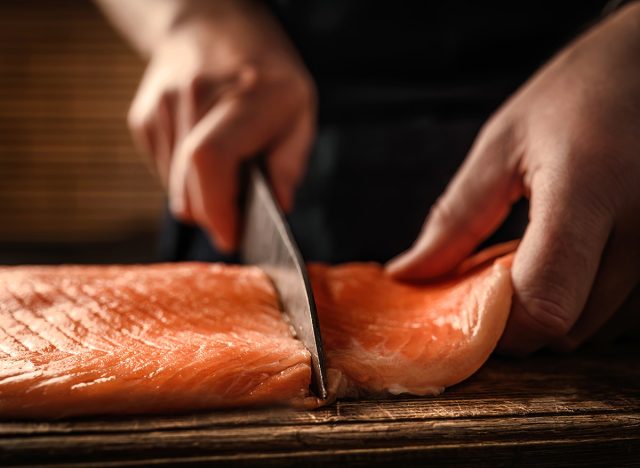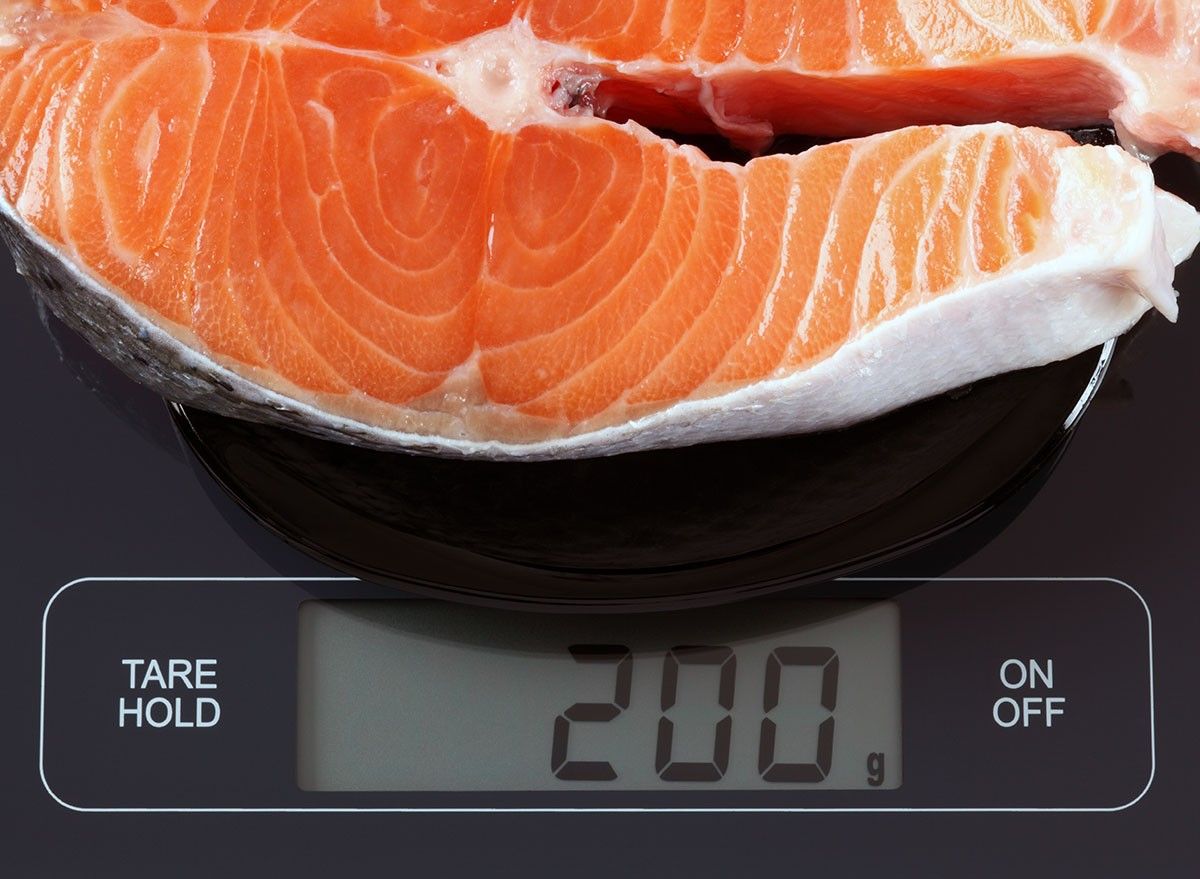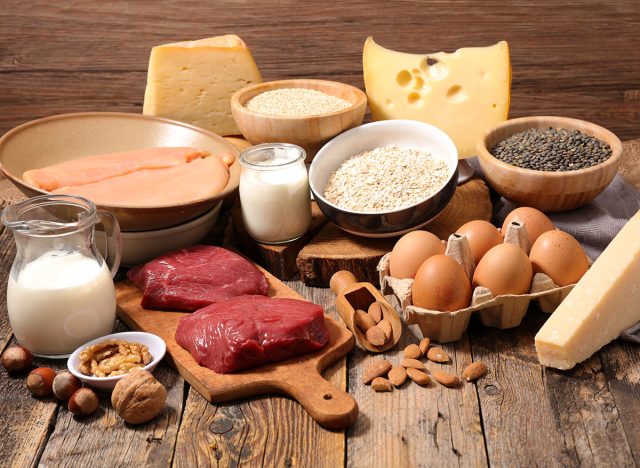14 Nutrition Secrets for Peak Athletic Performance

In the competitive realm of athletics, the intricate dance between nutrition and peak performance is a game-changer. My unique journey, enriched by four degrees and several certifications in exercise science, health, and behavioral science, positions me uniquely in this complex field. While not a registered dietitian, my educational foundation empowers me with a profound understanding of how dietary choices influence athletic excellence.
This article delves into 14 nutrition secrets, drawing on my extensive background in health and exercise science. It offers athletes and fitness enthusiasts alike, insightful guidance on optimizing dietary choices for competitive success. Emphasizing the importance of a well-informed approach, sustainability, and the critical balance of nutritional intake, I aim to illuminate the path to achieving peak athletic performance. Join me as we explore practical strategies and scientific insights that can elevate your performance to new heights.
Step One: Determine What is Off Limits

The first thing that an athlete should consider is whether or not there is anything that is off limits to them for medical or health reasons. The best way for an athlete to approach a situation will differ depending on the limitations that they have. If someone has Type II diabetes and cardiovascular disease, they should generally do something different dietarily with prepping for a competition than a totally healthy person. If you're dealing with a chronic disease of any sort, it's important to seek out medical advice to determine what sort of dietary changes are okay for you, and which aren't. Don't seek out medical advice related to health conditions from a personal trainer. Only seek them out from a licensed medical professional, such as a registered dietitian. Once you know what is off limits to you, you can create a game plan with whatever options remain. You can only make the most out of the situation you happen to be in, so it's important to factor that context in.
Step Two: Determine What is Sustainable for the Long Term

An athlete should also figure out what is sustainable for them long-term. You won't be successful if you plan to jump on a diet you won't adhere to. A diet cannot support your goals if you don't actually adhere to it. You'll get more out of a diet you can actually stick with, even if it seems like it's less effective than alternatives on paper. When trying to figure out what is sustainable, ask yourself what you are able to stick with even during a challenging week. It's common for people to base decisions about their dietary and exercise habits off of when they're at their best, but that can set them up to fail. Basing decisions off of what you can do when not in the best place will allow you to continue on the path you set out for yourself regardless of what happens. This can protect you from feeling like you've failed at doing what you set out to do and giving up.
Step Three: Do a Needs Assessment

It's also important to do a needs assessment. Figure out exactly what you are trying to achieve so that you can best tailor your diet to meet those needs. Factor in needs for various discrete goals that support your overarching goal. For example, your main goal may be to perform well in a marathon. What do you need to achieve this? You have a need to have effective workouts that will develop the athletic abilities you'll need on race day. You also have a need to minimize fatigue and maximize performance on race day itself. You can break down each of these needs further into smaller components. Continue breaking them down and figure out how to achieve each discrete need. Have a diet that helps you have no residual fatigue from your training on race day. Have a diet that provides you with the energy and resources you need to sustainably have high performance during your race.
Step Four: Figure Out How Much to Eat

It's hard to pick the most important thing an athlete should focus on to enhance their performance because dietary choices don't happen in a vacuum. If something is lacking, it can undermine the effectiveness of other aspects of their diet. If someone doesn't eat an appropriate amount of food, then it undermines the effectiveness of the quality and composition of the food they consume. That being said, I'd think that one of the most common issues athletes face is figuring out exactly how much to eat. It can be hard for someone to figure out how much to eat in general. It can be harder for them to figure out how much of what types of foods and nutrients they should eat. An easy way to illustrate this is to think about protein. If an athlete consumes too little protein for their needs, then they impair muscle recovery between training sessions, which in turn reduces workout quality and thereby also reduces long-term adaptations to those workouts. It also impedes the body's ability to build muscle following workout completion in general. Conversely, having too much protein serves to waste space in the athlete's diet that would be more useful to fill with other nutrients that are more helpful for meeting their goal. The exact amount of total food and each nutrient an athlete needs will totally vary depending on the specific person, their sport, their position in that sport, and the season they're in.
Step Five: Focus on Peri-Workout Nutrition

Athletes would benefit from paying attention to peri-workout nutrition: what they eat surrounding their workout. It's important to think of each workout like a finite resource. You only have so many workouts before your next game day or competition. You need to use each workout effectively to get the most out of it. One way you can do this is by making the most out of the way you eat around the time of your workouts. Exact needs will vary by athlete, person, and season, but paying attention to both pre and post workout nutrition can lead to greater long-term athletic success. Before your workout, eat to prepare you for the workout. Consume enough carbs to provide your muscles with glucose to support your training. Consume enough protein to protect against intra-workout muscle breakdown, which will result in a greater net change in muscle mass post-workout.
RELATED: 7 Pilates Moves for Core Strength You Can Do at Home
Step Six: Pay Attention to Hydration Status

Athletes should pay attention to their hydration status. You'll naturally lose water as you sweat, especially during a competition. It's important to replace all water you lose through sweat. You don't have to ballpark how much water you actually need to replace, though. You can measure it. Just weigh yourself before a workout or game. Then, when you're in a position to drink water, weigh yourself again. Assuming you didn't consume anything else or use the bathroom in the mean-time, the difference in your weight is the approximate amount of water you should replace. Try to pace out your water consumption when trying to replace the fluids you lost. Replacing lost water can support recovery which will help set you up for success in your next bout of physical activity. It can also help you stay healthier in general.
Step Seven: Consider Intra-Workout Nutrition

Athletes should consider intra-workout nutrition if it is relevant to their sport. You don't have to wait until after a game or competition ends to consume food or liquid. There can be some instances where consuming something during your competition can benefit you. There are some instances where it won't. If you're running a short sprint, don't consume anything during your sprint. If you're a marathon runner, consuming something appropriate during your race at an appropriate time can help you get over 'the wall' by helping you maintain higher blood glucose levels. It'll also just help you have a more pleasant overall experience.
Step Eight: Think About Your Training Phase

Athletes should think about what phase of their training they're in because their nutritional needs, much like their exercise needs, will differ based on the phase. The diet an athlete has should support their training and exercise needs. An athlete attempting to build muscle during a pre-season period will benefit from a diet that involves a calorie surplus. However, an athlete in-competition won't benefit from a calorie surplus in most sports because many athletes benefit from gaining weight that isn't attributable to muscle mass. There are some exceptions to this, but generally most won't. Although some weight gained in-season may be muscle mass, a lower proportion of it will be because training during this time period is less optimized for doing so.
Step Nine: Evaluate Your Protein Quality

Athletes should also pay attention to the quality of the protein they consume, since proteins with different amino acid compositions will have different effects on muscle protein synthesis. Although there is plenty of variation, generally milk proteins like whey and casein will be very effective at supporting muscle protein synthesis. Other types of protein, such as animal proteins, are also effective at supporting muscle protein synthesis. Consuming protein that more effectively supports your goal means that you need to consume less total protein to achieve a comparable effect. This frees up your diet a bit to focus on getting in more of other nutrients that also support your goals.
RELATED: I'm a Nutritionist and These are the Best Banana Recipes For Weight Loss
Step Ten: Remember, Food First, Supplements After

Athletes would benefit from focusing on food first before supplements. You'll find more success by optimizing your normal diet first and ignoring supplements than optimizing supplements and ignoring your normal diet. Try to think of supplements as a means to provide you with benefits that a fully optimized normal diet cannot. For example, creatine and whey protein supplementation can support meaningful adaptations to exercise for a lot of athletes because it's hard to naturally get in enough creatine from normal food and enough protein that strongly supports muscle protein synthesis like whey. Most supplements aren't really that useful or effective when someone is on top of their diet, but whey and creatine are the two that research has most consistently strongly supported for decades.
Step Eleven: Incorporate Variation

Athletes would benefit from incorporating variation into their diets. It's common for people to focus solely on what they perceive to impact performance directly and nothing else. This often results in athletes cultivating very narrow diets with a small number of foods that they eat consistently. This opens athletes up to dietary blindspots, making it more likely that they end up not getting enough of a nutrient or two that would support their health. Making sure that your diet is sufficiently varied by making choices like incorporating vegetables of various colors, will increase the odds that you don't have any accidental nutritional blindspots. Although it's easy to overlook micronutrients like vitamins and minerals because they don't feel as directly important for your performance, they still matter and have an impact on your health. If you're healthier longer and more consistently, you'll perform better longer and more consistently.
Step Twelve: Moderate

Athletes would benefit from moderation. It's common for athletes who are ambitious to go with the approach of more being more. Sometimes, less is more. This often manifests with both diet and exercise. Athletes sometimes spend too much time working out. Athletes also sometimes eat way too much or way too little food. If you're trying to gain muscle or strength, aim for a smaller calorie surplus. If you're trying to lose fat and cut weight, aim for a smaller calorie deficit. The larger the surplus is, the more fat you'll gain as well. The larger the deficit is, the more muscle you'll lose as well. This is especially important for athletes in sports that directly evaluate your body composition like bodybuilding, because it's an easy way for you to accidentally spin your wheels without really making much progress.
Step Thirteen: Be Flexible

Athletes would benefit from having flexibility in the way they think about their diets. It's important to balance your needs as a person with your needs as an athlete, otherwise your lifestyle will become unsustainable. It's easy to become so rigid with the way you eat that you start to feel resentment towards your status as an athlete. Allow yourself flexibility in a measured way if it supports your own personal life goals, such as when eating out with friends. You can always strategize to make the most of any situation, even if not ideal. Don't let yourself burn out because being too rigid too consistently might end up being a form of self sabotage. It's easy for people to develop disordered eating when they really focus on what they eat and how they eat, and eating disorders can impact your psyche which has an effect on your performance. Be kind to yourself and be realistic.
RELATED:11 Barre Moves That Sculpt Your Body
Step 14: Accept Imperfection

Athletes would benefit from accepting imperfection. The way you structure your diet and the dietary decisions you make will not be perfect, even when doing your best. There are tons of people with PhDs in nutritional sciences out there who aren't even perfect at this stuff, because it's complex and there are many factors to consider when figuring out how to optimize a diet for an athlete with complex needs over a long period of time. You won't have a perfect diet and that's okay. You just have to be good enough to keep moving in the right direction in terms of performance. You have to do your best and make the right choices to help you get ahead of your competition. Moving in the right direction is now the same as being perfect. It's easy to get trapped in trying to make your diet perfect, despite many literal experts having difficulty with that sort of task due to its inherent complexity. Being an athlete is complicated. Do your best and you'll be okay.
💪🔥Body Booster: Maximize your training gains by eating the right foods before and after workouts. Pre-workout carbs and protein will give you energy and muscle protection.




